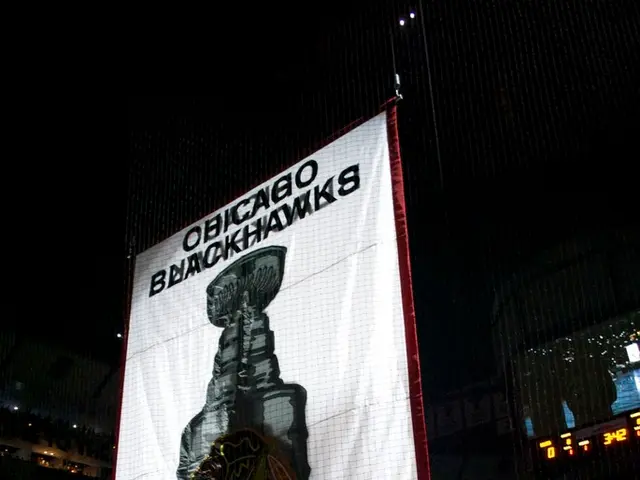Casino Execs Under Scrutiny: Lawyer, Writer Claims Mounting Pressure Causes Money Laundering, Hefty Fines in Gaming Industry
Gambling, Greed, and Money Laundering: A Global Conundrum
Casinos around the world are under pressure to perform financially, leading to a blind eye being turned towards criminal activity, especially money laundering. This predicament is not unique to one location but is a global phenomenon.
In the heart of entertainment and gambling, Las Vegas, the fine of $10.5 million levied on Resorts World Las Vegas for failing to comply with federal anti-money-laundering (AML) regulations is a stark reminder of the consequences. This penalty, part of a stipulated settlement to be reviewed by the Nevada Gaming Commission, comes second only to the $20 million fine imposed on Wynn Resorts in 2019 for failure to investigate sexual-misconduct allegations [1].
Anthony Cabot, a gaming lawyer and former UNLV professor, is not surprised by these hefty fines. He states, "For the last several years, the Gaming Control Board has been assessing substantial fines against many of the larger casino companies. This signals the industry that self-regulation needs to be a priority. Otherwise, casinos risk suffering significant monetary fines" [1].
In recent years, Wynn Resorts agreed to pay $130 million to the federal government to settle criminal allegations of conspiring with unlicensed money-transmitting businesses worldwide to transfer funds for their benefit. Despite this federal fine, the Nevada Gaming Control Board has yet to take any action against Wynn.
Scott Sibella, former president and COO of Resorts World Las Vegas, had his gaming license revoked after pleading guilty to federal charges for failing to report illegal gamblers playing at MGM Grand in 2018 [1]. Cabot opines, "The industry needs to rethink a lot of its regulatory strategies. Far too much pressure is put on casino executives to raise revenue from the casino, and those pressures sometimes take precedence over compliance and ethics" [1].
The gambling scene down under has been embroiled in money-laundering cases involving criminal gangs from mainland China. In July 2023, Crown Resorts was fined $300 million by the Federal Court of Australia for its lax AML protocols. In 2022, Star Entertainment was fined $62 million, and in October, it was fined another $10 million and faced a license suspension extension until 2025. Their Sydney casino is now under the management of a court-appointed manager [1].
Cabot describes these regulatory violations as some of the worst in decades. He emphasizes, "On an international basis, casino ethics are horrendous. I wrote the book because I was astonished at the lack of ethics. In Australia, it wasn't an employee crossing the line; it was institutional. It doesn't shock me what happens in Macau, Laos, Cambodia, and even the Philippines. But this same model imported into Australia on a massive scale was shocking to me" [1].
While the U.S. has had lapses, those cases were isolated, uncovered, and nowhere near the same scale as what is happening abroad, according to Cabot. He states, "The facts behind the Wynn case aren't known at this time, but would come out in any Gaming Control Board discipline" [1].
The worldwide casinos' tolerance towards criminal activity is primarily driven by the Chinese Triads. Cabot explains, "Someone in China accumulates a lot of money either legally or illegally and wants to transfer a big portion of it into some Western country banking system. Casinos are a good way to do that, because casinos are cooperative" [1].
Cabot is disheartened by Australian regulators not revoking gaming licenses despite instances of "some of the most egregious regulatory violations I've ever experienced" [1]. He laments, "I think that casino companies can be too big to fail is a bad message. Despite high fines, it takes one of the major deterrents to regulatory compliance off the table" [1].
In the case of Nevada, Cabot says, "Things are generally better than before the AML laws" [1]. However, he would like to see changes in the legislation, specifically addressing the issue of fining the individuals who commit the violations instead of solely the company. Cabot states, "Effectively, in a lot of the cases, the offenders will leave the company, and the company will still get a large fine, but the people paying the fine had nothing to do with the violation. It effectively harms the shareholders instead of actually going after the offenders" [1].
Regulatory actions taken against Resorts World, involving illegal bookmakers, have no connection with the international Chinese money-laundering issue in casinos [1]. Cabot warns, "That's been going on for a long time, but if you're doing proper due diligence on your customer, at some point, you recognize the money is coming from illicit sources and you have to cut off the customer" [1].
The U.S., with its stringent AML regulations, has significantly curbed money laundering activities compared to other regions. In the words of Cabot, "It was perfectly acceptable to take bags of cash, but that has disappeared from the landscape (in the U.S.). That's why it's so shocking to see in those other jurisdictions" [1].
Sources:
- Gaming lawyer: Pressure on executives to produce revenue has prompted some casinos to turn a blind eye to criminal activity
- AML/CTF: Australia's Anti-Money Laundering and Counter-Terrorism Financing Requirements for Casinos
- Casino Regulation and Money Laundering: The Case of Macau
- AUSTRAC: The Australian Transaction Reports and Analysis Centre
- Australian Casinos Under Scrutiny for AML/CTF Compliance
- By 2025, the Nevada Gaming Commission might review another settlement, this time for Resorts World, after they agreed to pay $130 million to the federal government for conspiring with unlicensed money-transmission businesses worldwide.
- In recent years, the gambling industry has faced pressures to generate revenue, a situation that has reportedly led to misconduct, as exemplified by the $20 million fine imposed on Wynn Resorts in 2019 for failure to investigate sexual-misconduct allegations.
- In the wake of the 2023 $300 million fine levied on Crown Resorts in Australia for lax anti-money-laundering (AML) protocols, Anthony Cabot, a gaming lawyer, expressed his disapproval of Australian regulators for not revoking gaming licenses despite instances of regulatory violations.







